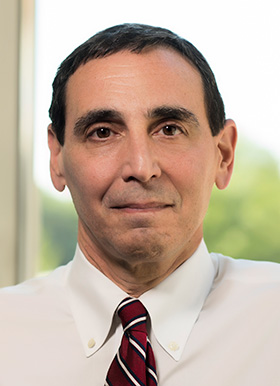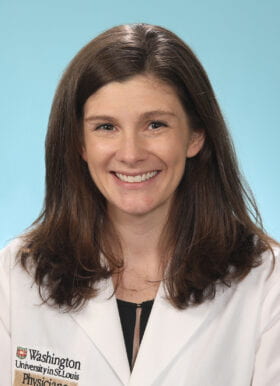From the Chairman

A lifelong commitment to fostering the health and well-being of our children and their families distinguishes pediatrics from other clinical disciplines. Learning the art of pediatric care will be one of the most exciting and rewarding experiences you encounter as you make the transition from medical school to residency. However, pediatrics is also rapidly evolving as a science, especially as we begin to assimilate the knowledge and promise of precision medicine into the more traditional aspects of clinical practice. Be assured, the integration of genomic data and molecular pathways into pediatrics will be transformative, and will undoubtedly effect how we train the next generation of pediatricians. As you begin to consider the type of pediatric training that aligns best with your career goals, you may want to consider those programs that offer rapidly changing curricula to keep pace with new technology and data that is driving a deeper understanding of how we will diagnose and treat pediatric diseases.
Dating back greater than 125 years, the Department of Pediatrics at the Washington University School of Medicine has a long-standing tradition of providing pediatric training in the backdrop of basic, translational and clinical research programs that are intimately woven into the academic fabric of the Washington University School of Medicine. Over 400 full-time and part-time physicians, 80 subspecialty fellows and the superlative allied-health staff at St. Louis Children’s Hospital support the training mission. In addition, the program directors continuously re-craft the longitudinal educational curriculum to complement the hands-on clinical training that occurs in the clinics, wards and ICUs of St. Louis Children’s Hospital. This meticulously crafted, mentored training program endows young physicians with the practical skill set and state-of-the-art knowledge to identify and treat the full spectrum of pediatric diseases.
Ultimately, our residency training program is designed to enhance your overall career development by teaching you the fundamentals of pediatric care and to raise your academic awareness by contemplating fundamentally important issues surrounding childhood diseases. Whether we help prepare trainees for a career in general pediatrics or as a physician-scientist in a pediatric subspecialty, residents leave our program feeling fully prepared to take on any career path.

Gary A. Silverman, MD, PhD
Chairman, Department of Pediatrics
From the Program Director

The selection of a residency program is one of the most exciting and important decisions you will make during your medical training. Residency training is different from all your previous years of education. Gone are the classrooms, the lectures, the homework and the tests! Instead, learning is hands-on, in the trenches, doing rather than sitting:
Examining the lungs of a child with asthma and watching how her physical examination changes while you administer bronchodilators…
Resuscitating a newborn with possible meconium aspiration and learning the techniques for stabilizing his respiratory status…
Stopping a seizure in an infant with the proper dose of antiepileptic…
We are thrilled that you are considering spending this critical time here at St. Louis Children’s Hospital and the Department of Pediatrics at Washington University School of Medicine in St. Louis. Through a diverse curriculum with a focus on hands-on learning at the bedside supplemented by didactic and case-based teaching sessions, trainees are exposed to the entire spectrum of pediatric clinical care ranging from common to extremely rare diagnoses. Whether residents ultimately pursue a career in primary care, hospital medicine or a subspecialty field, all residents in our training program gain the necessary foundation in general pediatrics through their various clinical experiences, including our COPE program, which pairs each resident with a practicing pediatrician in the community for their continuity clinic experience.
Our program has many options available for residents to personalize their training throughout residency. While the majority of our residents do not participate in a pathway, first year residents may choose to apply for the following pathways: child advocacy, global health and teaching. In addition, our Pediatric Physician-Scientist Training Program (PePSTP) provides an individualized training experience combining both clinical and mentored research training to prepare young scientists for successful careers in academic medicine. To help guide trainees on their future career paths, each resident is paired with a faculty mentor based on shared clinical or research interests at the start of residency. A wide array of wellness-related strategies— resident retreats, program-sponsored social gatherings, faculty wellness coaches and free mental health care — remain an important focus to support residents during the challenges of residency life.
In summary, our program is committed to recruiting and training a diverse group of highly skilled pediatric clinicians, educators, advocates and scientists who will help lead our field in the future. There are no better people with whom you could choose to work and learn. Thank you for considering our program, and we look forward to hearing from you!

Katie Wolfe, MD, MEd
Program Director